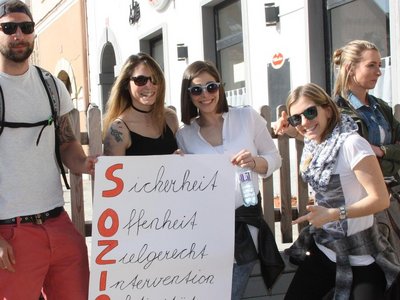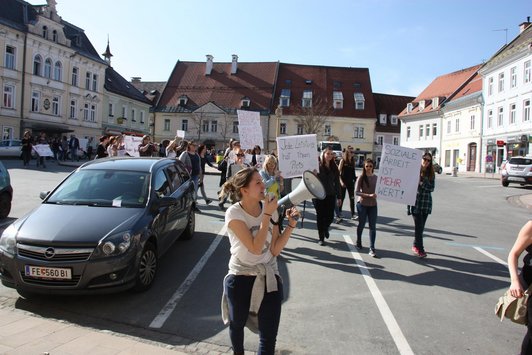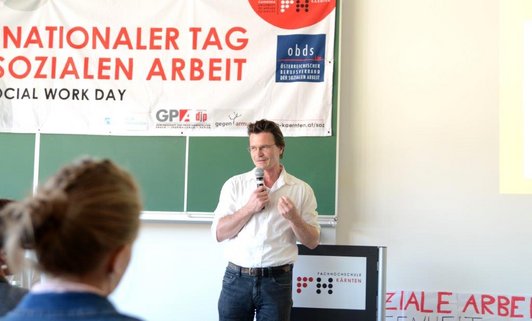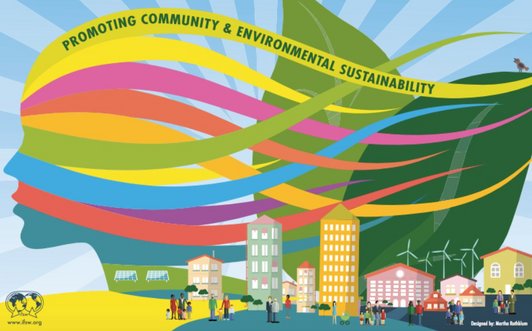

A delegation of more than 200 social work students, practitioners and educators marched on the streets of the small town of Feldkirchen, thereby communicating this year’s World Social Work Day’s motto ‘Promoting Community and Environmental Sustainability’ to the general public, to the media, and to local and federal politics.
The philosophy of marching on the streets as a means of social action was first introduced at an international social work conference on World Social Work Day 2014 in Kampala, Uganda. It was further cultivated in other social work events in East Africa. On WSWD 2015, another conference was launched in Burundi where participants marched on the streets of Bujumbura under tight political circumstances in view of the upcoming presidential elections. In 2016, WSWD was celebrated in Tanzania during a conference which also culminated in a march in the Northern town of Arusha, the host of the East African Community’s headquarters.
And now it was Austria where this powerful way of giving public visibility to the social work profession was successfully implemented. PROSOWO II project coordinator Prof. Helmut Spitzer had been eager to adapt this method of social action to his European context of origin; but he had also been sceptical if it would work. But it worked! The delegates got electrified, and the spirit and power generated from the march further positively impacted on the plenary sessions and workshops that followed thereafter. Overall, it was a successful way of knowledge transfer from Africa to Europe; and yet, there is so much more where the North could learn from the South.



